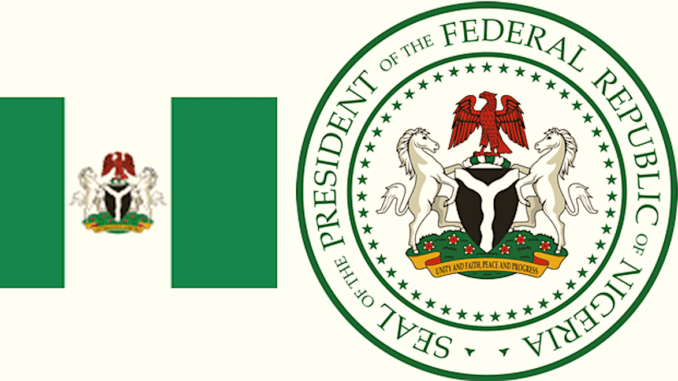
THE dangerous game of political muscle-flexing currently unfolding in Venezuela has, undoubtedly, reached a boiling point. The situation has become too devastating to ignore under the guise of Article 2 (4) of the United Nations Charter that promotes non-interference in the internal affairs of a sovereign country. While the people suffer, Venezuela has been reduced to a game of chess between two grandmasters, each desperately plotting the deadly move that will checkmate the other.
But the setting in Venezuela is so delicately poised that it calls for an urgent external intervention through the agency of the United Nations to prevent a perilous slide into a damaging civil war. At the moment, the country is split down the middle, between two political arch-rivals, one of whom has the backing of the people but without the power of territorial control, while the other has the military and the judiciary at his beck and call. When a country starts flaunting two leaders, as is currently happening in Venezuela, it is evidence that things have fallen completely apart.
Since January 23, when Juan Guaido, the leader of the legislature, declared himself the interim president, following a disputed presidential election which returned the incumbent, Nicolas Maduro, to another six-year term, both combatants have been locked in an eyeball-to-eyeball confrontation. Although things have not yet deteriorated to the point of the people taking up arms against themselves, the world may not have to wait for long before it gets to that point – unless there is a drastic intervention. Enough has however happened to force about three million people who no longer feel safe to flee the country in the past few years. As tension heightens, humanitarian crisis and crackdown on dissent are approaching unprecedented levels.
A combination of contrived political crisis, international sanctions and mismanagement of the economy has spawned a near-total collapse of the Venezuelan economy. Despite boasting the largest oil reserves in the world, the country has been hit hard by hyperinflation, predicted by the International Monetary Fund to reach a stunning 10 million per cent this year. The inflation rate has been compared to what happened in Germany after World War I in the 1920s and Zimbabwe in 2008. While wages can no longer sustain existence, there has been a serious shortage of food and of medicines to treat the sick. There is no water, no electricity.
A hitherto booming economy, Venezuela succumbed to five successive years of devastating contraction, starting with the global oil price slump of 2014. For a country that draws 96 per cent of its earnings from oil sales, just like Nigeria’s economy, there is a serious lesson to learn about economic diversification and investment in the manufacturing sector. It is a lesson that should not be lost on Nigeria, Africa’s oil giant that is also facing hard economic times.
At the height of the oil boom, the Venezuelan economy was regarded as the pride of South America. But instead of investing its oil revenues wisely, the country, under the late leader, Hugo Chavez, started experimenting with outdated socialism and turned the country into mainly import dependent – just like Nigeria. Besides embarking on what he termed wealth distribution to bridge the gap between the rich and the poor, Chavez also introduced price controls, where government regulated the prices of goods. This resulted in a boost to the black market.
From an economy that once reportedly attracted a $600 billion per year foreign direct investment, Venezuela is now left with a pathetic return of zero FDI. A report quoting the IMF said the economy contracted by 18 per cent in 2018 alone, following an earlier contraction by 30 per cent between 2013 and 2017. Obviously, the prognosis for 2019 does not look rosy.
While the two combatants are not showing any sign of backing down, the country remains a scene of daily mass protests, encouraged by Guaido, against the Maduro government because of the absence of essential goods and services. Humanitarian aid from the United States, which has also imposed sanctions on the country, has been blocked by Maduro, who describes the crisis in his country as a “coup” by the United States. With the military and judiciary behind him, he has been ruling without recourse to the legislature. Both Guaido and Maduro have split global support, with the US, Canada and a substantial part of Western Europe throwing their weight behind the 35-year-old Guaido, just as Russia, China, Iran and Bolivia are backing Maduro.
Aside from the lessons of too much reliance on oil and gas, Nigeria can also learn a lot about the need to conduct free and fair elections. In a bid to manipulate the outcome of the presidential election last year, Maduro, whose rule had witnessed the collapse of the economy, became high-handed, throwing some of the presidential candidates into jail while others either boycotted the democratic exercise or simply fled the country. The legislature, after deeming the election illegitimate, cited a section of the constitution that allowed the President of the National Assembly to assume temporary leadership of the country until another election.
To avert any constitutional crisis, Nigeria has to ensure that the elections are peaceful, free and fair so that enemies would not have the opportunity to throw the country into crisis. If Venezuela, with a population estimated at just 32 million, can suffer what it is going through now, the fate of Nigeria, with a population estimate in excess of 193 million is better imagined.
In Venezuela, the rivals should be herded to the negotiation table and fresh elections held. Instead of using the country to fight a proxy war, countries such as Russia, China, the US, Germany and the United Kingdom should be the ones to bring the warring parties together. Everything should be done to avert a civil war.
END

Be the first to comment